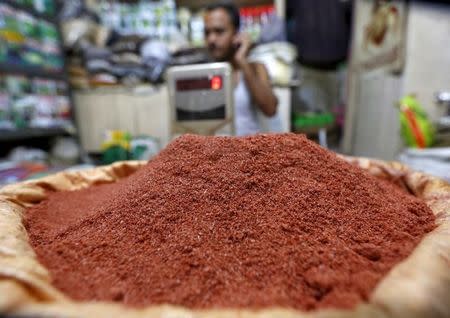Indian fertiliser companies to raise potash prices after subsidy cut

By Rajendra Jadhav MUMBAI (Reuters) - Indian fertiliser companies will soon raise potash prices after the government last week cut subsidies by 20 percent for the current financial year, officials said. Higher potash prices charged to millions of Indian farmers will hurt demand in one of the world's largest importers of the fertiliser, raising concerns for big global suppliers. To offset the subsidy cut, Indian companies also plan to bargain for lower prices in their annual import contracts with international suppliers like Uralkali, Potash Corp of Saskatchewan, Agrium Inc, Mosaic, K+S, Arab Potash and Israel Chemicals. India buys potash from these global miners in annual contracts that the South Asian country usually signs at the start of its fiscal year beginning on April 1. Contracts signed by India and China are considered international benchmarks, and are closely watched by other potash buyers such as Malaysia and Indonesia. India's potash producers will have to raise prices now, said a senior official with a leading domestic company. The official did not wish to be identified because he is not authorised to talk to media. "But we will do this after consulting the government and other industry officials," he said. Prime Minister Narendra Modi's cabinet last week cut potash subsidies by 20 percent from a year earlier to 7,437 rupees ($114.49) a tonne for the 2017/18 fiscal year. Government officials in February had said New Delhi could cut the potash subsidies by 17 percent. India relies on imports to meet its annual potash demand of about 4 million tonnes, but higher prices are expected to limit its use by the country's 263 million farmers, who will plant rice, cane, corn, cotton and soybean crops in the monsoon months of June and July. With the strengthening of the rupee against the dollar, fertiliser companies would likely not pass on the entire subsidy reduction to farmers, said an official with a private fertiliser company. The Indian rupee has appreciated 4.5 percent so far in 2017. "Considering the reduced subsidy, we will negotiate with suppliers to try to get potash at the lowest price for Indian farmers," U.S. Awasthi, managing director of Indian Farmers Fertiliser Cooperative Ltd, the biggest producer, said. India's potash import requirements are likely to fall in the 2017/18 fiscal year due to a significant stocks carried forward from last year, Awasthi said. (Reporting by Rajendra Jadhav; Editing by Mayank Bhardwaj and Tom Hogue)

